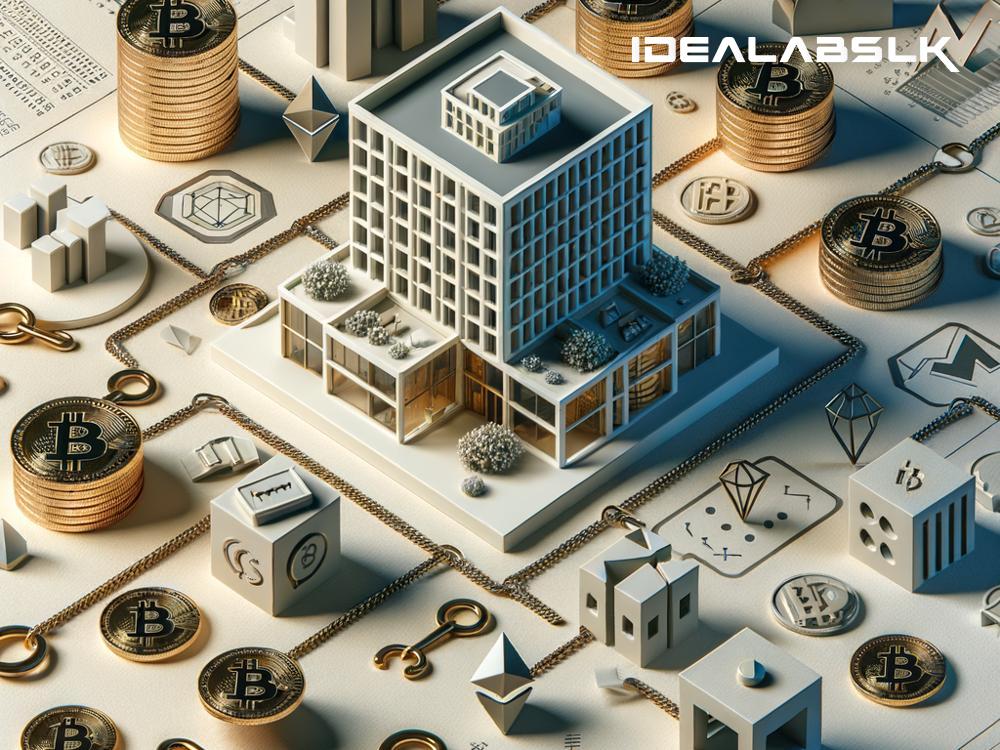Unlocking the Future of Real Estate: How Blockchain is Revolutionizing Project Crowdfunding
Crowdfunding in real estate is an innovative way to pool resources from various investors to fund projects, from residential complexes to commercial real estate developments. This approach not only democratizes investment, allowing more people to participate in the lucrative real estate market, but also simplifies the process of raising capital for developers. However, despite its numerous advantages, traditional crowdfunding faces challenges such as a lack of transparency, slow transactions, and often, high costs. Enter blockchain technology, a game-changer that promises to transform real estate crowdfunding with its unique capabilities.
The Basics of Blockchain
Before diving into its implications for real estate crowdfunding, let's understand what blockchain is. At its core, blockchain is a decentralized, digital ledger that records transactions across multiple computers in a way that ensures the security, transparency, and immutability of those transactions. Each “block” of data is linked to the previous one, creating a “chain”, which is openly accessible but highly secure and resistant to fraud. Originally developed for Bitcoin, blockchain's potential extends far beyond cryptocurrency.
The Revolutionary Impact on Real Estate Crowdfunding
-
Enhanced Transparency and Trust: One of the most significant advantages of integrating blockchain into real estate crowdfunding is the unparalleled level of transparency it offers. Investors can track where their money is going at every stage of the project, from the initial funding to the construction progress, up to the final completion and revenue generation. This transparent process builds trust among investors and developers, fostering a more confident and secure investment environment.
-
Streamlined Transactions: Traditional real estate transactions are notorious for their complexity and the time they consume. Blockchain radically simplifies this by automating and securing transactions through smart contracts. These are self-executing contracts with the terms of the agreement directly written into code. When predetermined conditions are met, transactions or other actions are automatically triggered, cutting down processing times from weeks to minutes and reducing the need for intermediaries.
-
Global Accessibility: Blockchain technology democratizes real estate investment by making it accessible to a global audience. Traditional crowdfunding platforms may have geographical limitations and require investors to go through cumbersome regulatory compliances. Blockchain platforms, however, enable universal access, allowing anyone with an internet connection to invest in real estate projects worldwide, broadening the investor base and bringing in more capital.
-
Reduced Costs: By eliminating intermediaries like banks and lawyers, blockchain reduces transaction costs significantly. This cost efficiency not only benefits investors by increasing their potential returns but also enables developers to raise funds more effectively.
-
Fractional Ownership Made Easy: Real estate investments usually require significant capital, but blockchain allows for the fractionalization of property ownership. This means that investors can purchase small shares of real estate, lowering the entry barrier and enabling a more diverse group of individuals to invest in high-value properties.
Real-World Applications and the Road Ahead
The impact of blockchain on real estate crowdfunding is not just theoretical; several platforms have already started leveraging this technology to revolutionize how investments are made. For example, platforms like RealT and Brickblock offer tokenized real estate investments, allowing users to buy and trade fractions of properties securely through blockchain.
As the technology matures and more stakeholders recognize its benefits, we can expect blockchain to become a standard in real estate crowdfunding. However, for this future to materialize, several challenges, including regulatory hurdles and the need for broader blockchain literacy, must be overcome. The real estate industry's traditionalists might be resistant to change, but the undeniable benefits of blockchain could very well pave the way for a new era of real estate investment.
Conclusion
Blockchain for real estate project crowdfunding represents a seismic shift in how investments are made and managed. By offering solutions to chronic issues such as lack of transparency, inefficiency, and high costs, blockchain holds the promise of making real estate investment more accessible, secure, and profitable than ever before. As we move forward, embracing this technology could unlock untapped potential, bringing forth a future where investing in real estate is as easy and transparent as buying stocks online. Indeed, we are standing at the threshold of a new dawn in real estate crowdfunding, powered by blockchain.

